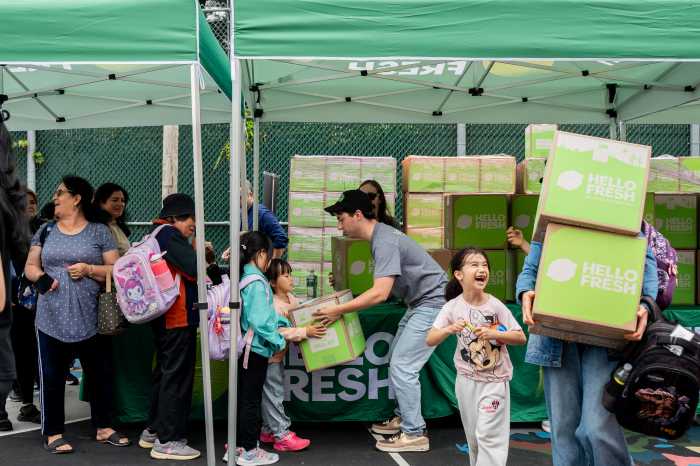This isn’t your average cooking show.
In the first five minutes of Netflix’s “Cooked,” you’ll see a wild lizard get killed, roasted on hot coals and, well, cooked.
Based on Michael Pollan’s “Cooked: A Natural History of Transformation,” this four-part series is far from “Top Chef” or even “Chef’s Table.”
“This is intentionally the opposite of food porn,” said “Cooked” filmmaker Alex Gibney over lunch at Blue Smoke. “We wanted to make it real, but there is a lot of beauty in it.”
Gibney, who also directed HBO documentary “Going Clear: Scientology and the Prison of Belief,” said “Cooked” appealed to him because of “what it said about us, human beings, who we are at our essence.” Along with plenty of culinarians, Gibney shares a desire to “take back our food from the big corporations” and “get into the kitchen.” Or fire pit, if you’re craving lizard, that’s fine.
Before pairing your Seamless order with your nightly binge-watching, consider this revelatory match: Netlix and cook.
Food writer Michael Pollan, known for titles including “The Omnivore’s Dilemma” and “In Defense of Food,” was not a huge cook before embarking on “Cooked.”
“I was cooking but not in a very serious or mindful way,” he said. Pollan “stumbled into the importance of cooking” after seeing how corporate agriculture, fast food, cheap sweetener and outsourcing our food to corporations was harmful to people.
Pollan, who refers to humans as “the cooking animals,” has found that people who eat home-cooked food don’t suffer as severely from health epidemics, including obesity and type two diabetes.
It’s always easier to watch cooking on TV — your takeout container isn’t judging you during “Iron Chef” — but Pollan wanted “Cooked” to be a “celebration of the process” of cooking.
Pollan noted that cooking has become a spectator sport, from networks airing only cooking demos to open kitchens in restaurants. “There’s something about the process of cooking that makes us want to watch, it’s primal,” he said. “[But] cooking shows exploit that. They discourage us; they make it look really hard and really intimidating.”
Millions of Americans are spending more time watching cooking on television than actually cooking, and that’s a problem, Pollan said.
“Cooked” doesn’t glamorous deglazing your pans and rushing through Whole Foods to find the most premium ingredients to impress celebrity judges. Instead, it harrows back to the roots, history and glory of cooking, and hopefully inspires viewers to get off the couch and into the kitchen.
Even if your combo kitchen/living room feels too small to function as more than a Seamless unpacking space, Pollan shared that his any veggie frittata recipe is functional enough for even the tiniest of New York cooking areas. Better yet, it’s more a method than a recipe, so you can use last night’s leftovers or lingering back-of-the-fridge produce to make an incredible fritatta.
“[It’s] just about the easiest, tastiest, cheapest and most nutritious meal you can make in less time than it takes to go pick up takeout or microwave a pizza,” he said. Go ahead, race your Seamless delivery guy. You’ll eat faster and have more time for TV.





































